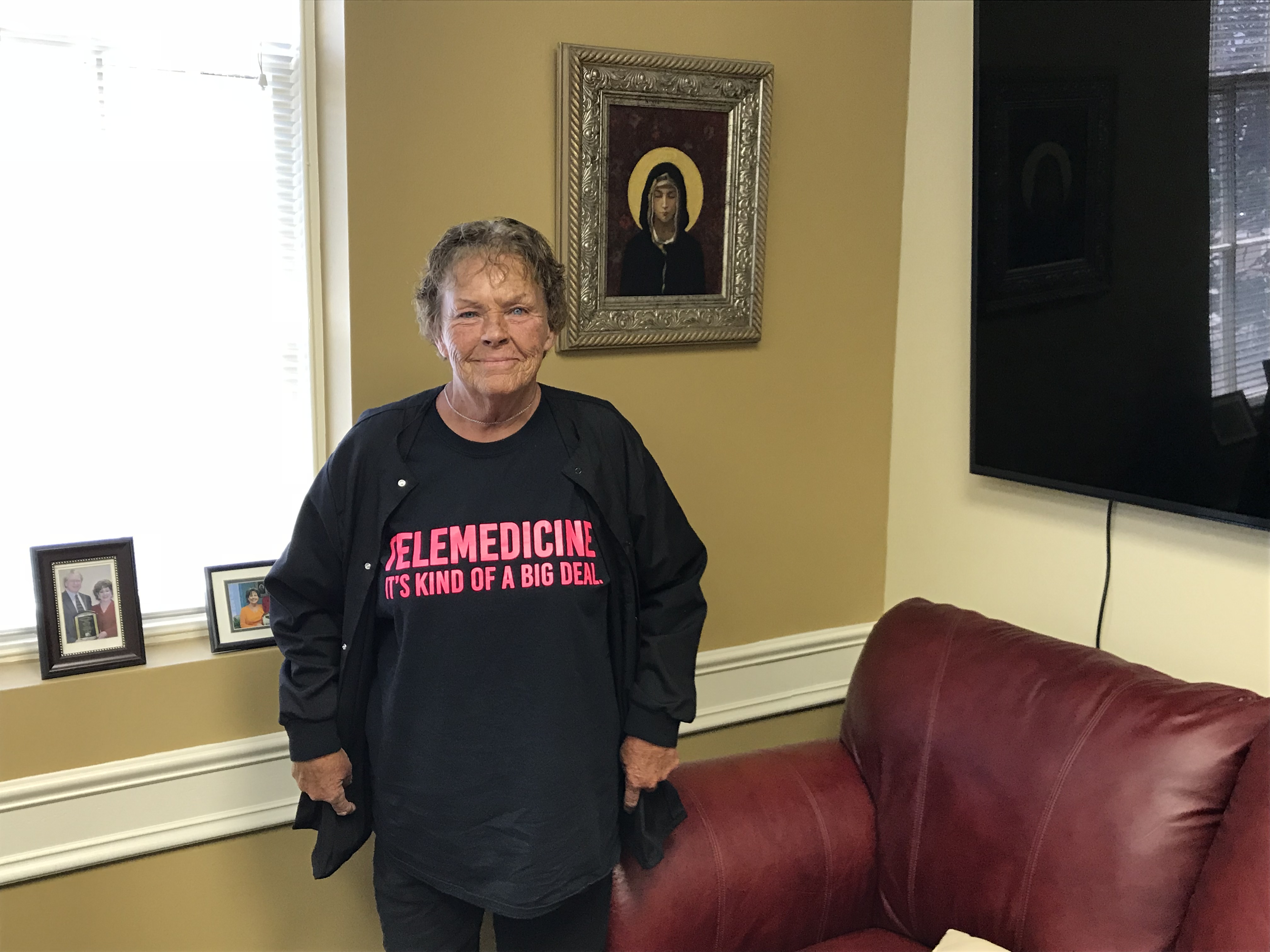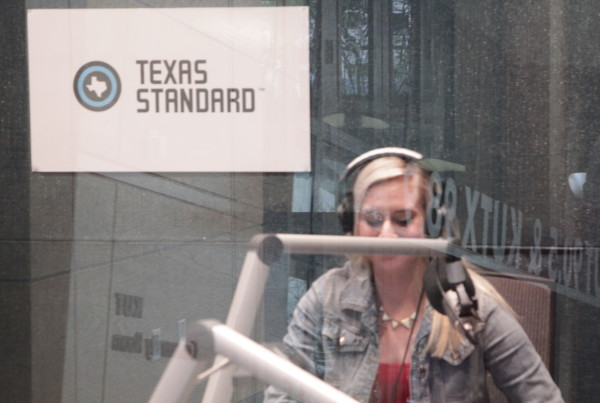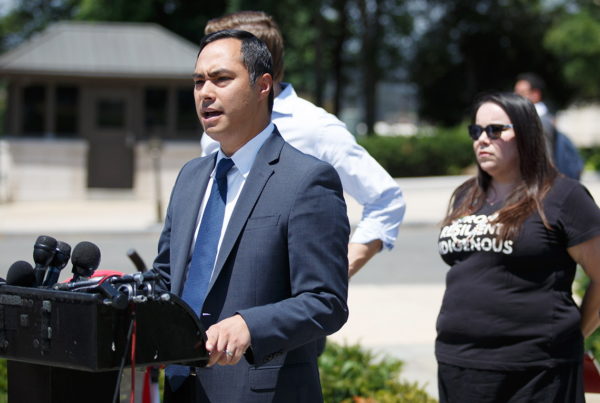Over the years, Kandice Mallard and her mom Brenda Dagestad have traveled hours from their home in Abilene to see psychiatrists. First, it was Midland, then Lubbock – about two-and-a-half hours away. Then, they found a Dallas-based doctor who used telemedicine. That meant Kandice could have her appointments locally. But Brenda says Texas Medicaid deemed Kandice “stable” and changed her provider to a local physician’s assistant. Kandice wants to keep seeing her regular psychiatrist, but that will only be possible if they drive to Dallas to see her in person. They’re considering it because Brenda says Kandice doesn’t feel comfortable with her new doctor.
“The new doctor, the first thing they say is, ‘Well, I don’t see any of these symptoms,’ and they want to change their meds. It almost seems like they don’t understand this is why this person is stable and able to function,” Brenda Dagestad says.
Kandice lives with schizophrenia, which the American Psychiatric Association describes as a severe mental illness. Symptoms can include hallucinations, disordered thinking, and issues with concentration and memory. Medication is considered central to treatment, which is why a psychiatrist – who can prescribe medicine – is essential to Kandice’s recovery. But her mom believes patient-physician rapport is also important.
“By changing Kandice’s psychiatrist, it threatens her stability,” Brenda says.
Texas has had a psychiatrist shortage for years. In 2014, the Department of State Health Services reported most counties – nearly 73 percent of them – had no psychiatrists at all. And the latest data compiled by the Kaiser Family Foundation shows over 9.6 million Texans live in areas designated as mental health professional shortage areas. Most of those areas are rural.
People in urban areas are also affected by the shortage. They often have to deal with physician wait lists. And because of supply and demand, many psychiatrists don’t take insurance, which means patients can pay upwards of $300 for an initial visit. But rural Texans have the added complication of needing to travel long distances to find the next available psychiatrist.
Karen Duong is a psychiatry resident at the University of Texas Southwestern Medical School. She did her internal medicine training in Hereford – about 50 miles southwest of Amarillo.
“I had a lot of patients, maybe 40, 50 percent that did have mental health needs and were not able to get the care that they needed,” Duong says.
She says it was common practice to refer them to psychiatric services in larger cities, but that came with its own set of problems.
“Then we run into issues with patients not being able to access the services, whether it’s due to transportation issues. By the time they are being seen by an outpatient psychiatric provider, they’re going straight into an acute psychiatric setting,” Duong says.
That means the ER, which costs the patient and the health care system more money. Patients often end up self-medicating with alcohol or drugs. Some end up in jail.
Shelley Smith is the CEO of West Texas Centers – one of the organizations that gets state funding to provide mental health services mostly to the un- and underinsured. She says these outcomes – ER, addiction, jail – are what she and her staff are constantly trying to prevent.
West Texas Centers has clinics in 23 counties in the Permian Basin, and serves an area of over 25,000 square miles. The territory is not only rural but “frontier” – really, that’s what the Rural Health Information Hub calls the “most remote and sparsely populated” areas – far from services. Back in the early ‘90s when Smith started doing this work, she says a handful of psychiatrists would make the rounds to each of her clinics.
“They would travel and do one clinic a day. One day they’d go to McCamey…the next day they’d go to Kermit…so we had a lot of windshield time,” Smith says.
But as those psychiatrists got older and started to retire, that model stopped working for one major reason: no one wanted to fill their place.
“We found ourselves just absolutely unable to recruit doctors to replace the doctors that were leaving,” She says.
Solutions have come in fits and starts. When Smith couldn’t recruit full-time psychiatrists, she relied on “locum tenens” – basically temp services for doctors. One large locum tenens staffing agency says positions can range from a few days to six months or more. For West Texas Centers, that meant less consistency. Joni Boyd, the medical services coordinator for the group says the locum tenens doctors also simply weren’t as available as those who worked full time.
“If they only worked for you one day a week, that was the only day a week you could communicate with them. So if something came up in the meantime, you couldn’t talk to the treating doctor till the next week. So that really made it difficult for a lot of our patients,” Boyd says.
At the same time, the need for psychiatrists is g rowing as more people have access to mental health care through the Affordable Care Act. Boyd says she’s seen demand grow especially among children.
“It has at least doubled since I’ve been here— the number of children that we see per month,” Boyd says.
But West Texas Centers can’t provide psychiatry for everyone who needs help. That’s partly because of the limits of state funding. As a result, much of the burden of mental health care falls on primary care doctors. A yearlong study between 2006 and 2007 found that nearly 60 percent of the 472 million prescriptions for mental health medications were made by general practitioners. Twenty-three percent were written by psychiatrists.
The problem is – primary doctors don’t have the same specialty training. And, as generalists, they’re expected to care for all aspects of a patient’s health during a 15-minute appointment.
Kandice Mallard’s mom Brenda works with Mental Health America in Abilene. She accompanies some patients to their doctor visits. She says she knows people who like getting their medications this way but that even primary care appointments can be hard to get, especially for those with employer or commercial health insurance.
“There just really aren’t a lot of options in this area unless you’re in the public health system,” she says.
Support for Texas Standard’s ”Spotlight on Health” project is provided by St. David’s Foundation.















